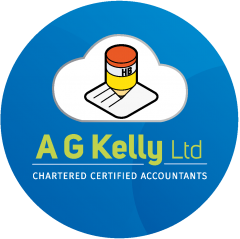A calculator which can be used to calculate statutory maternity pay, statutory paternity pay and statutory adoption pay is available on the Gov.uk website at
Author: tonykelly
31 January 2019 deadline
Temporary increase in Annual Investment Allowance (AIA)
Budget 2018: the chancellor has announced a temporary increase in the Annual Investment Allowance (AIA) to £1million.
The AIA limit will be increased from £200,000 to £1million for two years from 1 January 2019.
Have you considered a group structure?
Is it a good idea to have substantial assets in your trading company? What if something goes wrong? All your assets may be at risk. It is advisable to consider setting up a group of companies, to separate property ownership from your trading company. If you think this may apply to you, please contact us and we can discuss your individual circumstances.
Happy New Year to all
Automatic enrolment – rates changing from April 2018
The minimum contributions rates for automatic enrolment are set to
increase:
On the 6th April 2018, the total minimum contribution will increase
from 2% to 5%. Employers will need to contribute a minimum of 2%.
Employees will need to contribute a minimum of 3%.
Minimum contributions will undergo further increases in April
2019, with the total minimum contribution rate increasing to 8%,
representing a 3% employer and 5% employee contribution.
It is an employer’s responsibility to make sure that they are prepared for
these new contribution levels. If an employer wishes, they can decide
to pay the total minimum contribution rate which is 5% from April 2018
and 8% from April 2019. In these cases, the employee does not have
to pay any contributions, unless the rules of the pension scheme say
otherwise.
Tax deductions for paying wages to family members
If your son or daughter helps you in the family business, how do you make sure their wages are tax deductible?
A recent tax tribunal case (Nicholson v HMRC) highlights some issues. Mr. Nicholson claimed his son helped him by delivering leaflets etc. His wages were £10 per hour for 15 hours per week. Unfortunately, there was no evidence of the wages being paid.
There were payments for food and drink to help his son at university. The tribunal concluded that the payments were made out of “natural parental love and affection” and concluded that Mr. Nicholson was doing nothing more than supporting his son at university.
The advice in similar situations would be to keep proper records of the hours worked and payments made, and payment should be made from the business account to the son’s account. If the son was on the payroll, then this would also go a long way to help with any queries from HMRC.
If you employ family members then please contact us if you need help or advice in this are.
Trivial benefits – up to £300 in tax year
Directors of small companies can receive tax free benefits of up to £300 in a tax year. However, the benefits are limited to £50 a time.
A meal out for the director and his wife/partner might cost £45. Consider using your trivial benefit allowance before the 5th April.
Buying a property – first time buyers
In the Autumn Budget, it was announced that first time buyers will get a reduction in stamp duty costs.
If the cost of the property is less than £500,000, no stamp duty will be payable on the first £300,000.
Dividends
If you are a company shareholder, dividends can be a tax efficient remuneration strategy.
Dividends are taxed differently to salaries, and no national insurance contributions are payable on dividends.
For 2017-2018 the first £5,000 of dividend income is tax free and basic rate taxpayers pay 7.5% tax on dividend income above this.
However, the £5,000 dividend allowance will reduce to £2,000 with effect from 6 April 2018.
